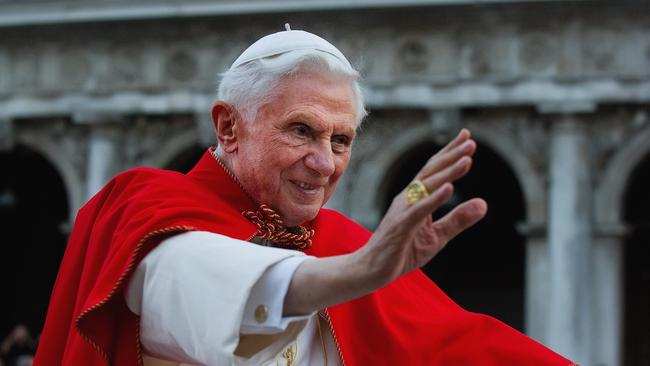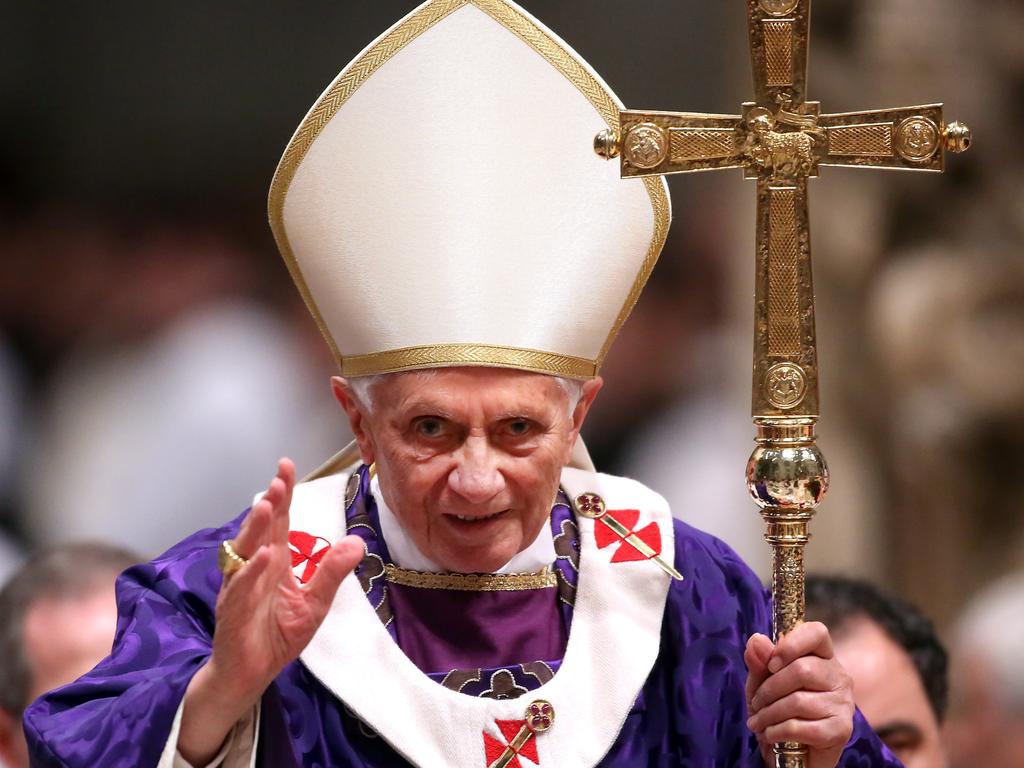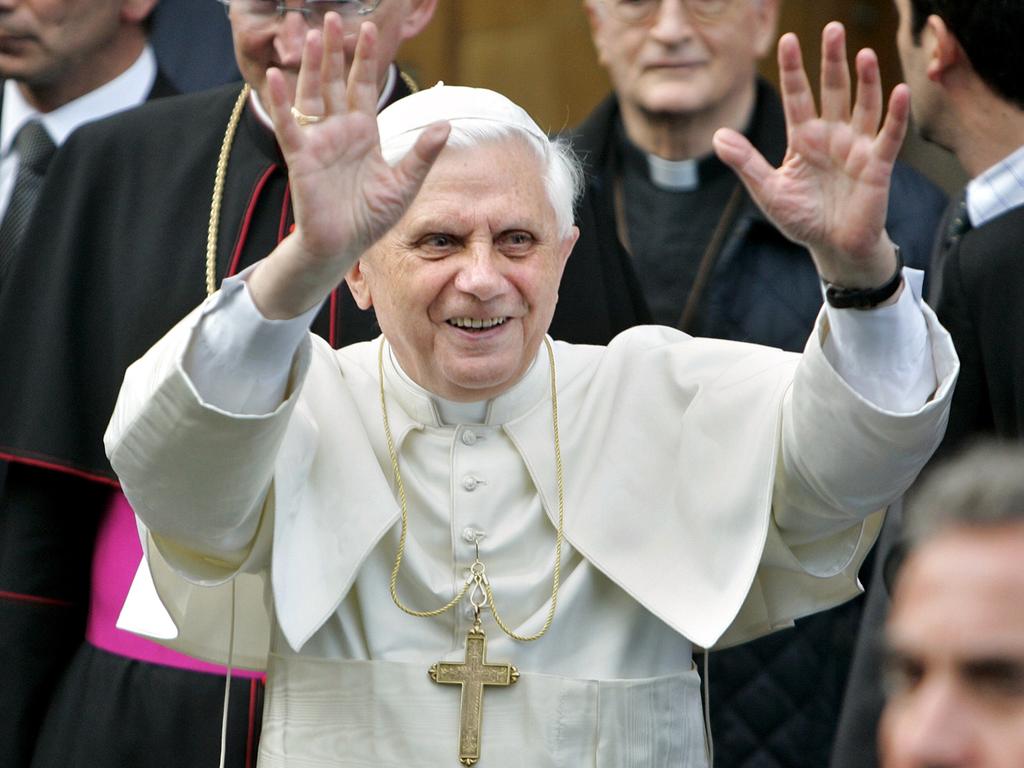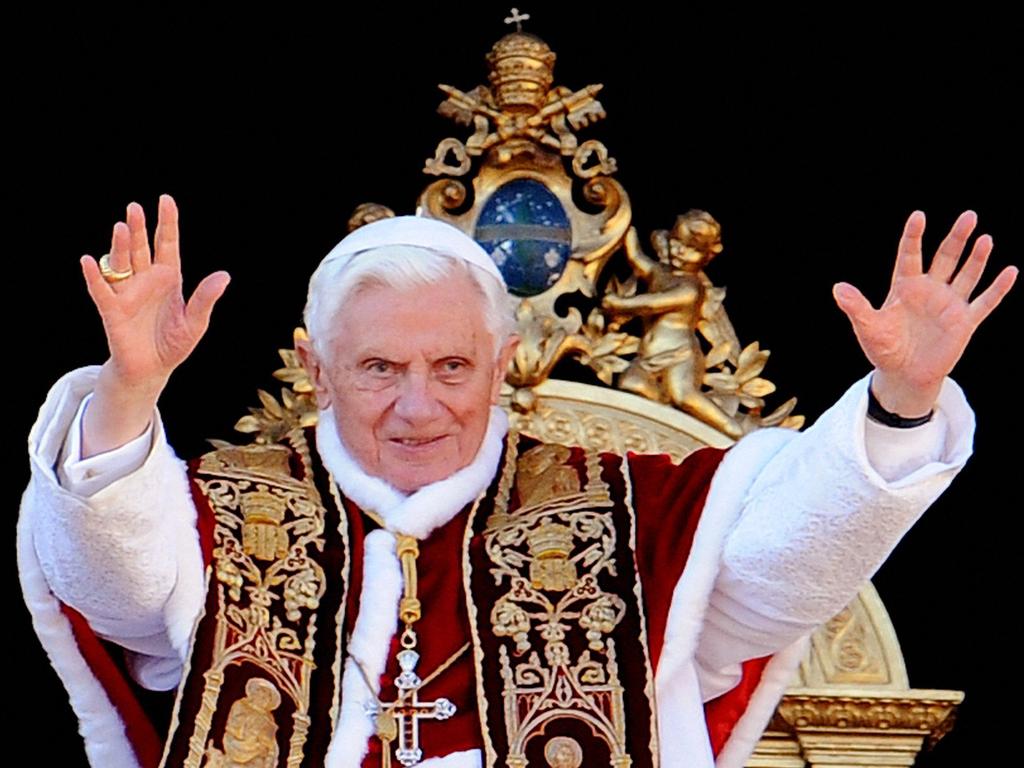
Hitler’s regime, which had forcibly euthanised Ratzinger’s cousin, a 14-year-old boy with Down syndrome, and hounded his father, was, he later wrote, a “regime of lies”, built on the systematic denial of Christian values.
Affirming those values – including the supreme importance of truth and truthfulness – became his life’s work, pursued through outstanding scholarship and devoted service to the Catholic Church, culminating in his elevation to the papacy as Pope Benedict XVI in 2005.
Ratzinger’s scholarship, which informed every aspect of his thought and action, was intellectually uncompromising; but while its richness defies simple summary, its widespread portrayal as inherently conservative, if not reactionary, is an appalling caricature.
Rather, writing at a time that was unremittingly hostile to his deeply held commitments, he sought to clarify the intellectual foundations of Catholic Christianity and its meaning in the present day.
Central to that effort was his rehabilitation of faith in its relationship to reason.
There is not a single path to knowledge, he argued: it is one thing to know that we love someone, quite another to know the boiling point of water. Far from being monochrome, the palette of human understanding contains a variety of ways of knowing – ranging from pure acts of intuition through to exercises in judgment and in the scientific method – which must be combined if we are to make sense of the world.
Seen in that perspective, faith does not exist independently of and in opposition to the other ways of knowing: an inherent faculty of the mind, it “expands the limits of reason”, helping “the isolated and fragmented intellect” to grasp the fullness of life, in the heights of its beauty and the depths of its tragedy.
And like the other ways of knowing, it is the constant interaction with reason that gives faith content and structure and allows it to develop in a changing world. He was therefore equally scathing of those who advocated reason without faith – a position he thought must lead to the disappearance of all values – as he was of the fundamentalists for whom faith alone matters, and who saw their faith as justifying the bigotry, coercion and terror Ratzinger unfailingly condemned.
Paralleling his clarification of the interdependence of faith and reason was his analysis of the relation between tradition and change. For Ratzinger, the process of understanding, although demanding individual commitment, is not, and cannot be, the action of an isolated individual. Just as knowledge is intrinsically social, so Christian faith, which is built on revelation and obtained through grace, is embodied in the faith community — that is, the church.
It is the church’s continuity, and the tradition it has spawned, that makes it “possible for subsequent generations to have the same experience of the Risen One that was lived by the apostolic community at the origin of the Church, since it is passed on and actualised in the faith, worship, and communion of the People of God, on pilgrimage through time”.
But while Ratzinger cherished continuity, he unequivocally rejected the view that Christians could live in a spiritual natural history museum, where the original faith would be preserved in formaldehyde. On the contrary, the tradition could survive only “by being continually renewed in the process of living”.
The church therefore had to avoid both the reluctance to change that would lead to “a faith that is completely sterile and has nothing to say to today”, and the temptation to seek popularity by “subjecting herself to modern culture, which has been caught up in a process of self-doubt since it lost its religious base”. The difficulty of navigating those dangers required carefully specifying the unalterable “essence” of Catholic belief, which was the aim of his most significant works, including his Introduction to Christianity.
It was on the basis of that specification that he built a third pillar of his thought and action, the dialogue between the church and other faiths. While that dialogue was wide-ranging, few areas loomed larger than the relation to Judaism. It is a sign of the weight he placed on that relation that one of his last substantive publications, which appeared in 2018, was devoted to the issue. The essay proved controversial, not least because its analytical complexity and its implicit reliance on other aspects of his scholarship opened it to misinterpretation.
There are, however, some facts that are, to Jews, unforgettable: his opening statement – that “Since Auschwitz, it has been clear that the Church needs to think anew about the question of the nature of Judaism” – which places the burden of responding to the Shoah not on humanity generally, nor even on generic Christians, but squarely on the Catholic Church; his repeated emphasis on Judaism as a legitimate interpretation of the Bible; his landmark step in saying the State of Israel is not merely a secular reality but “expresses God’s faithfulness to the people of Israel”; and his intransigent defence of religious freedom.
Behind those facts lies another: that there are very few churchmen, and certainly no pontiffs, who have been as influenced by Jewish thought as was Ratzinger, beginning with his encounter, which he described as transformational, with the writings of Martin Buber.
Of course, all that enriched, rather than in any way qualifying, his faith in Christianity. Nor does the attention he paid to this issue negate the reality that he was an indifferent administrator who struggled with the papacy and who – as Cardinal George Pell wrote on these pages – may have been a good pope but was not a great pope.
That he made errors of judgment is undeniable. Yet what constantly shines through is Ratzinger’s honesty. There were many demands Jesus makes, he told a biographer before becoming pope, that even a cardinal “most certainly” could not fulfil, “for he is just as weak as other people”.
“The older one gets,” he also reflected, “the more one suffers from the fact that one simply does not have sufficient strength to do what one is supposed to do; that one is not up to situations.” All he could do at those times was turn to God, saying: “Now you must help, I can’t go on.”
As he passes into history, it is that all too rare combination of passionate conviction with intense humility that, along with the brilliant scholarship, deserves to be celebrated. In the end, the 16-year-old who, recoiling from the horrors of Nazism, vowed to live in truth more than kept his word.








Drafted against his will into the German army at age 16, Joseph Ratzinger was all too aware of the horrors of Nazism.